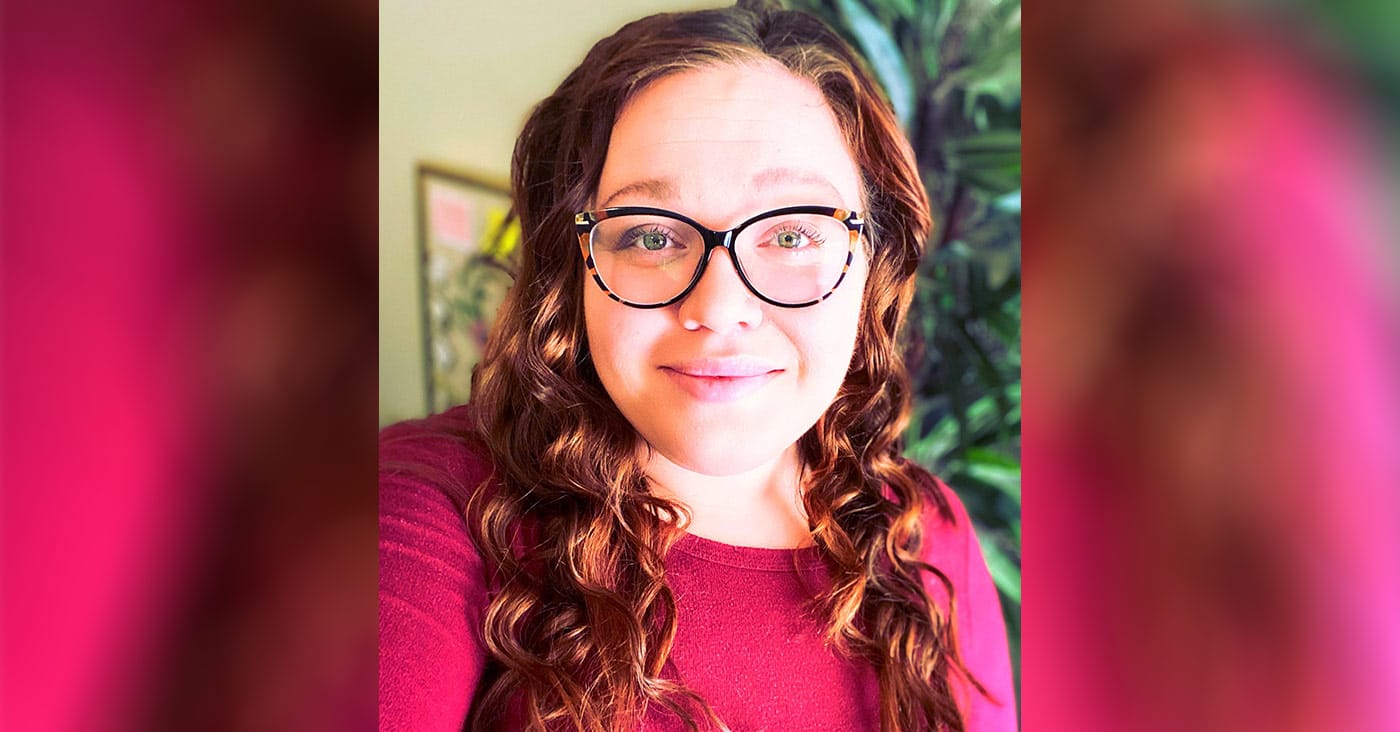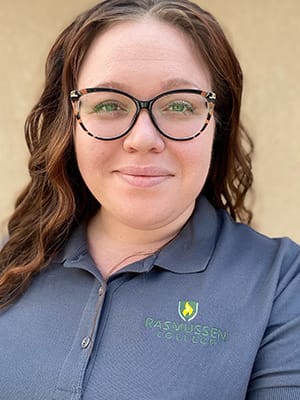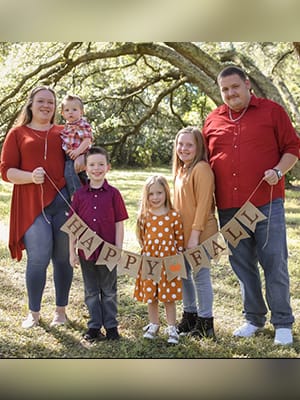Four Kids, Two Jobs and Four Degrees: How One Woman Learned to Balance It All

When Jewel Mende woke up in labor the morning before her final Bachelor’s degree paper was due, she knew she had two choices. She could ask for an extension—but that would mean waiting until after her fourth child was born. Or she could sit down at her desk, clear her head and finish her assignment.
Jewel wouldn’t recommend writing a paper while in labor, but she does admit that it changed the way she looks at challenges.
“Yeah, we go through struggles,” she says, “but I have to pick myself right back up and get it done.”
From ECE to a Master’s degree

One day, while working at a childcare center in Land O’Lakes, Florida, Jewel heard about anEarly Childhood Education Certificate programat the nearby Rasmussen University Campus. At first, she wrote off the idea, thinking she had enough going on in her life with a full-time job and two kids.
“School was never really on my radar,” she says.
But as she thought more about it, she realized that earning her Child Development Associate (CDA) credential through the program could help her move up in her position. So she enrolled.
Once she finished the Certificate, she was already several credits into anECE Associate’s degree, so she kept going. That turned into anECE Bachelor’s degree, and though she had two more kids along the way, she also managed to complete herMaster of Human Resource Management.Though Jewel is undoubtedly an impressive student, she admits the journey was not always easy.
Finding your “why”
“The first couple weeks are the toughest,” she says. “It's not usually till around week three or four that you're starting to get it and it’s starting to click.”
Going to school while working full time and having a family is challenging no matter what. But like everything in her life, Jewel found a way to make it work. She came up with strategies to stay on track with her homework.
“I would set an alarm for an hour and a half. I put my phone across the room, and I would not get up until that alarm went off.”
Eventually, strategies like this are what lead to Jewel working part time in the tutoring and peer mentoring program at Rasmussen University. She started meeting with new students to talk about challenges they were facing and to share her tips for success—all while still working full time at a childcare center. One of the most important things she talked about with them was finding their “why.”

“We all have one,” she says. “Whether it’s a job promotion or our kids. No matter what it is, we all have a why.”
For Jewel, it’s her children. She recalls one instance early on in her courses when she was sitting at the kitchen table doing homework. Seeing their mom working hard, all of her children came to the table, pulled out their school assignments and starting working alongside her. It’s moments like this that keep her going.
“If we all take some time to think back on our why, it truly helps with getting back on track and finding the motivation needed to push through.”
Facing the future
On December 18, 2020, Jewel Mende graduated with her Master’s degree. After six years of school, she is currently taking some time to reflect on her journey and prepare for the next chapter. She hopes to use her degrees to unite people and maybe even help college students in a career services role.
“I like getting everybody together and on the same page,” she says.
She encourages others to think about moving forward to their next degree.
“Once you get in it, it just becomes a part of who you are. It's doesn't really change too much from degree to degree. The due dates stay pretty much the same, though the workload changes a bit. It's really just doing the same thing that you're already doing, but you’re continuing to further your education,” she says.
For those considering going back to school, she echoes what so many of her peer mentees have said:
“If she can do it with four kids and two jobs, then I can definitely do it.”
Graduates of Early Childhood Education programs at Rasmussen College are not eligible for licensure as a teacher in an elementary or secondary school. A Bachelor’s degree and a state teaching license are typically required to work as a teacher in a public school and some private school settings. States, municipalities, districts or individual schools may have more stringent licensing requirements. Students must determine the licensure requirements in the state and school in which they intend to work.
Childcare facilities and the states in which they are located establish qualifications for staff who work with children and often implement guidelines regarding age, education, experience and professional development. Students must determine the licensure requirements for the state and facilities in which they work.
This program has not been approved by any state professional licensing body, and this program is not intended to lead to any state-issued professional license. For further information on professional licensing requirements, please contact the appropriate board or agency in your state of residence.






